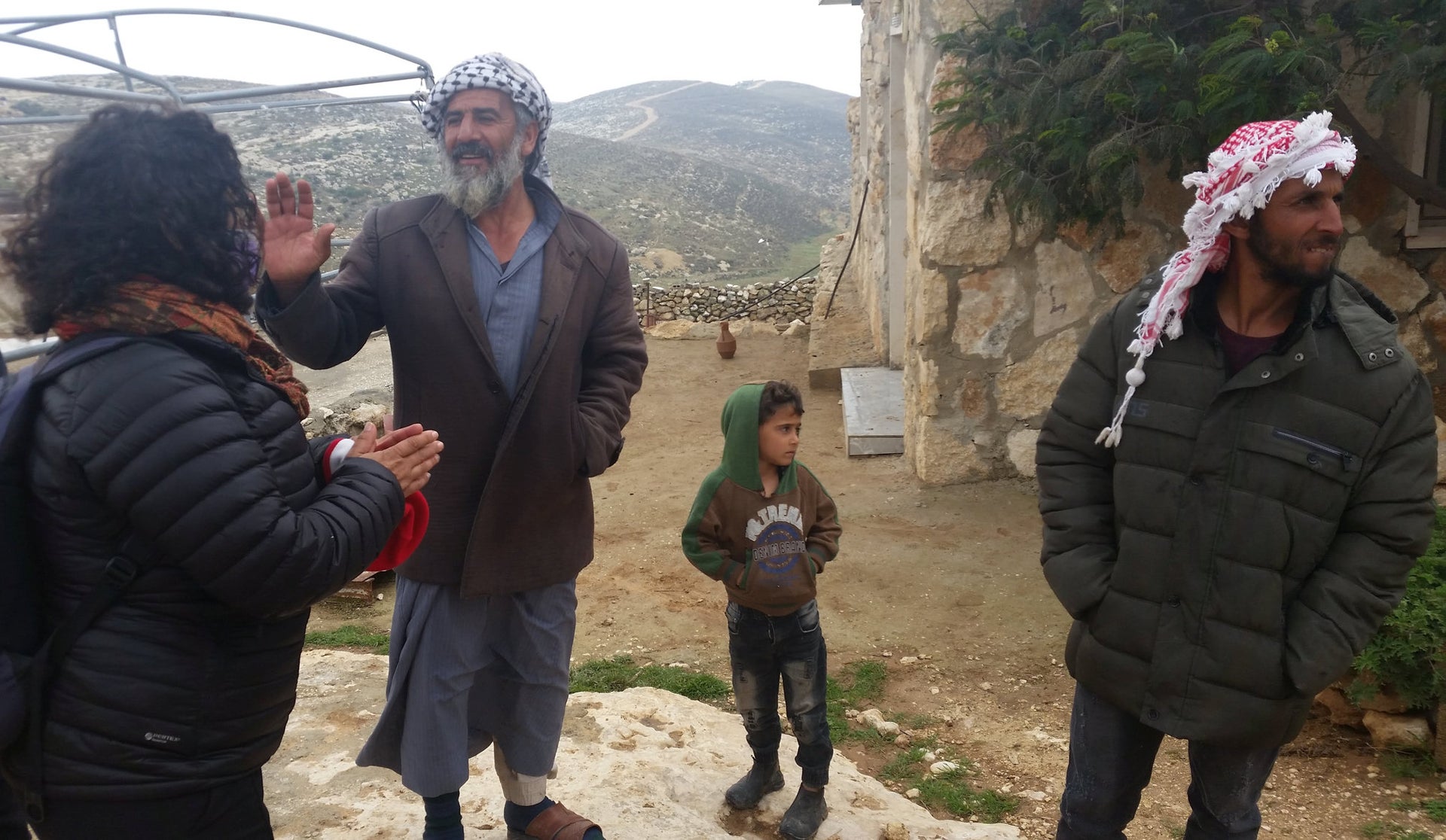When the Judge Ruling on the Fate of Palestinians Is Himself a Settler
 Thursday, March 24, 2022 at 12:04PM
Thursday, March 24, 2022 at 12:04PM 
“In Jewish law, it is commanded to treat every claim equally,” wrote attorney Yitzhak Bart in a 2014 article whose title references the Jewish concept that a claim involving a penny should be treated the same as one involving a large sum. Now, Bart is a senior deputy head of the State Prosecutor’s Office division that represents the state in cases before the High Court of Justice.
Last Tuesday, he enthusiastically represented the state and the Israeli army in court over their demand to demolish eight West Bank Palestinian villages in Masafer Yatta, a cluster of Palestinian villages in the South Hebron Hills, so that military training can be conducted in the area. Officers in uniform from the Israeli Civil Administration in the West Bank and from the army’s Central Command attended the hearing and whispered into Bart’s ear from time to time.
Bart passionately lamented that the villages are not what they were 40 years ago, when the army first designated the villages’ land a military training zone. “The petitioners continue to build and there is tremendous momentum in the construction,” he complained.

Masafer Yatta is home to traditional Palestinian cave-dwellers since at least the beginning of the 20th century. As Bart described the area and the structures that have been built alongside the original residential caves – including schools, mosques, and a medical clinic – one might think he was referring to the bustling and ever-expanding settlements in the Gush Etzion bloc.
Shlomo Lecker, a lawyer who has been representing residents of the villages since 1999, attempted to correct this misrepresentation, fearing the judges – who are not required to see the villages and the reality with their own eyes – would get the wrong impression. The clinic is a tent, Lecker noted. As for the schools, he said, it’s a shame there are no photos showing how pitiful they are, since Israel has been repeatedly denying Palestinians permission to build.
Let us get back to Jewish law. in his article, Bart quoted the Talmud, which cited Deuteronomy 1:17: “’Ye shall hear the small and the great alike,” and then stated the concept that a claim involving a penny should be treated with the same concern as one involving a large sum.

The Israeli judicial system has indeed shown so much concern for the impoverished residents of Masafer Yatta that their petitions against their expulsion and the destruction of their way of life as shepherds and farmers have been transferred from one panel of judges to another for more than 20 years. We at Haaretz are also so concerned about them that we repeatedly write about them and their heroic steadfastness against the state’s tremendous efforts to erase their past – and their future.
- Israel blew up their houses in 1966. Now it claims their village never existed
- The Palestinian kids braving Israeli demolition of their homes
- After two decades, Israel's top court to decide on fate of Palestinian hamlets of Masafer Yatta
And now back to Bart’s article: it addresses what seems to be a technical issue: the distribution of cases at the various levels of the court system. But it also contains statements of principle and ethical values. Embedded in the genetic code of Jewish Law, wrote Bart, is a rejection of the distinction between “large’” claims [quotations in the original] and “small” claims.
First, he focuses on the monetary aspect of the principle: “Just as the Holy One blessed be He judges the orphan and the widow, the judge is also commanded to devote the same degree of seriousness and attention to claims for small sums as he devotes to claims for a large sum.” He then goes beyond the monetary aspect, when he quotes and interprets the commentary of Rabbi Baruch Halevi Esptien of Belarus from the early 20th century: “The words of Rabbi Epstein are based on the principle of equality, theft is theft, and skewing the trial of the poor man, when the claim concerns a penny, is no less important than skewing the trial of the rich man.”

Bart’s reader can reasonably assume that Jewish law expects the judge not only to “hear” but also to rule against any theft, large or small. Moreover, with requisite caution, the same reader is likely to interpret that Jewish law’s genetic philosophical code also views “large vs. small” as a metaphor for any relationship between the strong and the weak: between ruler and subject, man and woman, majority and minority, a white person and a Black or indigenous person in a place like the United States.
 APJP |
APJP |  Post a Comment |
Post a Comment |
Reader Comments